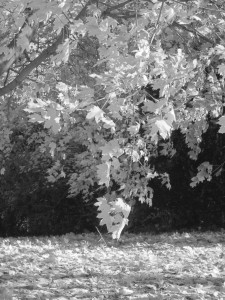
PHOTO: Mary van Balen
We sat across from each other studying the wine list. The middle eastern restaurant had moved to a more spacious location since I had last eaten there and the menu layouts had changed too. That wasn’t the reason why we didn’t have any idea what to order when the waitress stopped by our booth. We had been discussing the movie we had just seen: The Giver.
“Can I get you ladies something to drink?”
“Merlot.”
“Pino Noir,” and waters with dinner.”
The waitress nodded and disappeared.
“Do you think we live our lives in black and white?” my friend asked.
If you haven’t seen the movie, the parts that deal with the people in the community living n the present are in black and white.By the end of the movie that had changed. Not as dramatic as “The Wizard of Oz,” but you get the idea.
Her question forced me to think. Despite writing and writing and writing about living in the moment and the importance of being present to grace in the moment (the name of my column), I fessed up to running around as hurried as most, muti-tasking, and indulging in other behaviors that distract from the present.
“Thich Nhat Hanh says when you wash dishes, washing dishes in the most important thing in the world, and when you drink tea, drinking tea is the most important thing in the world,” I offered. Then admited to slurping a mouthful of tea from a mug on my table while preparing to present a retreat on journaling into prayer a couple of weeks ago, moving from room to room gathering materials, jotting notes, and checking lists. “I guess that’s living my life in black and white.”
“You ladies ready to order?”
No, not even close. We had barely looked at the menu. My friend made our apologies.
“I’ll be back.”
“I know,” my friend said. “I’m usually doing so many things at once. I mean I walk the dog thinking I’ll get outside and appreciate the season, but end up on the phone touching base with the kids, figuring out schedules, just keeping on top of things, so when I get back home I realize I didn’t see a thing,”
After a couple more attempts, the waitress quit asking. She just made eye contact and moved on.
In the movie, so much was controlled to avoid conflict and suffering. But at what cost? What would it mean for us to break out of black and white living?
“You know, the other night I came home after work and grocery shopping and stepped out of the car. The air was cool and clear. Night was a hour or so away, and the sky still showed some color: blues and a bit of orange. The brighter stars were visible overhead. I stood still for a few moments and threw my arms out wide. “Glorious!,” I whispered. “Glorious!” I called out loud, stretching my arms as wide a possible as if I could pull it all inside of me, living in color.
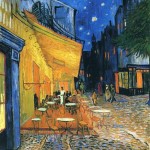
van Gogh Cafe Terrace Place du Forum Arles 1888
Living in color doesn’t always feel so good or look so pretty. When I cried out of hurt and frustration the other day, that was living in color. I allowed myself to feel, facing what I’d rather not. Perhaps it would’ve been more pleasant to ignore the feelings, to live in black and white. What about reading the headlines, or listening to a hurting child. Technicolor. I thought of van Gogh. Such suffering. Such color.
The ancient questions about suffering and death and ‘Where is God in that?’ thoughts came to mind. God invited Job to trust, and to live in wild, uncontrollable color. Jesus did too. Even when the color was blood red.
Back to the moment. We decided to split a dinner platter and eat our way around colorful plate of humus, baba ghanoush, bean salad, slaw, rice, falafel, and stuffed grape leaves.
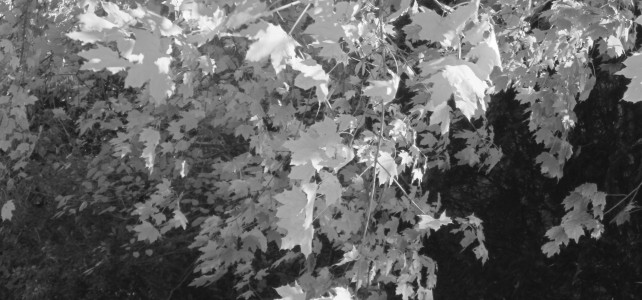

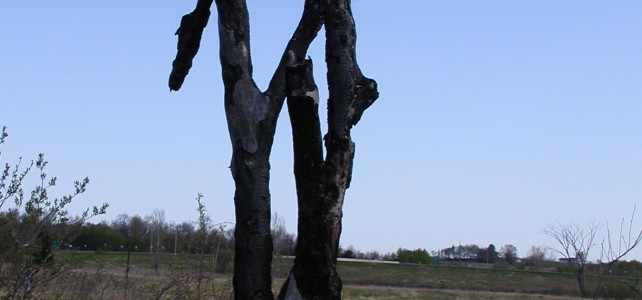


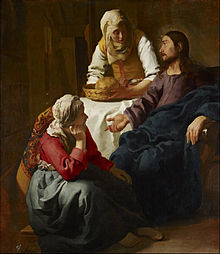

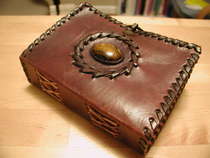
 Journaling has long been a way of prayer for me. Writing can help me be present to the moment, aware of Grace in ordinary experiences. It also helps me reflect on life as it unfolds. Sometimes it’s a book or movie that touches my spirit. Sometimes a passage from Scripture or a photo, or a conversation. It might be current events or listening to YoYo Ma.
Journaling has long been a way of prayer for me. Writing can help me be present to the moment, aware of Grace in ordinary experiences. It also helps me reflect on life as it unfolds. Sometimes it’s a book or movie that touches my spirit. Sometimes a passage from Scripture or a photo, or a conversation. It might be current events or listening to YoYo Ma.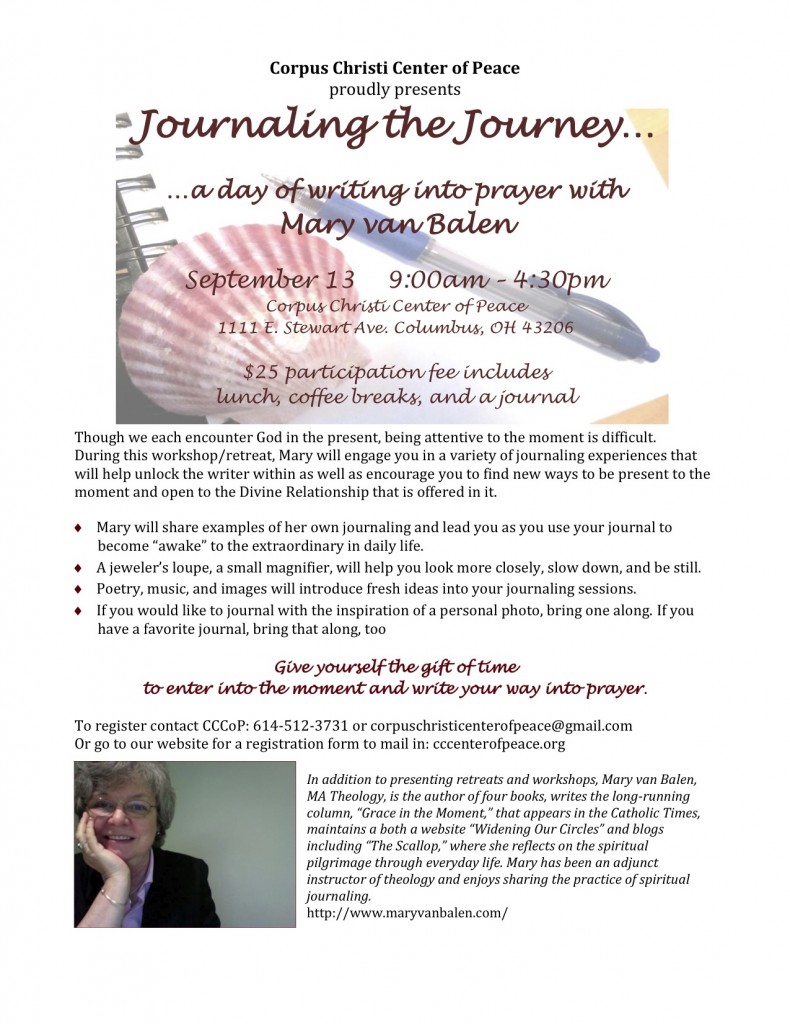
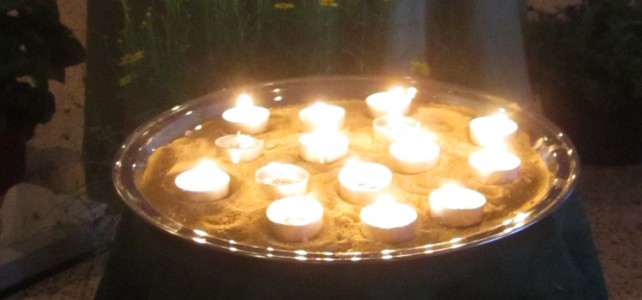
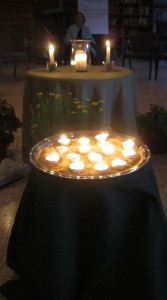


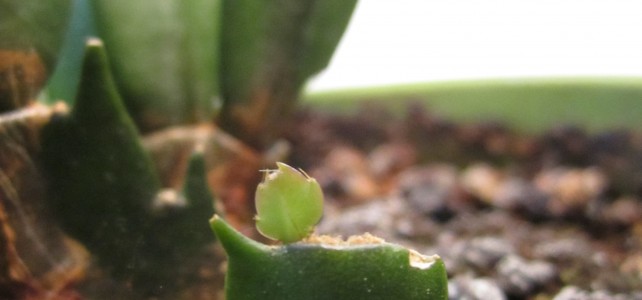
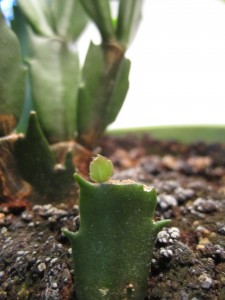
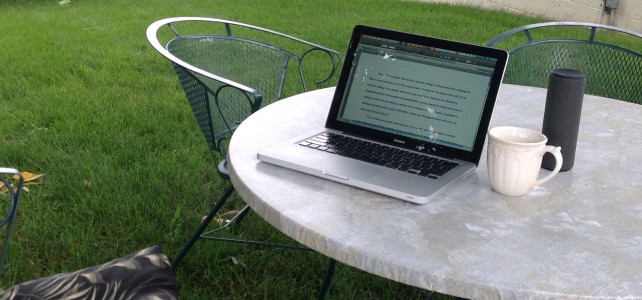
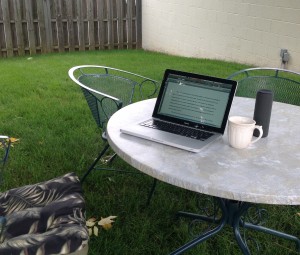 I’m not completely Bluetooth challenged. I have a Bluetooth keyboard and mouse for my computer and iPad. But, last week, after a year without anything to play music in my house (unless you count the TV, which I hate to use because the entire time the CD is on, so is the TV’s blue screen), I decided to shop and not return without a speaker of some sort to use with my ipod/ipad. I’ve procrastinated too long to buy an iHome docking radio and speaker. Why didn’t I buy that one I saw at Target six months ago. Now, my 4th generation iPod is “old,” its 30 pin connector replaced by “lightening connect.”
I’m not completely Bluetooth challenged. I have a Bluetooth keyboard and mouse for my computer and iPad. But, last week, after a year without anything to play music in my house (unless you count the TV, which I hate to use because the entire time the CD is on, so is the TV’s blue screen), I decided to shop and not return without a speaker of some sort to use with my ipod/ipad. I’ve procrastinated too long to buy an iHome docking radio and speaker. Why didn’t I buy that one I saw at Target six months ago. Now, my 4th generation iPod is “old,” its 30 pin connector replaced by “lightening connect.”

